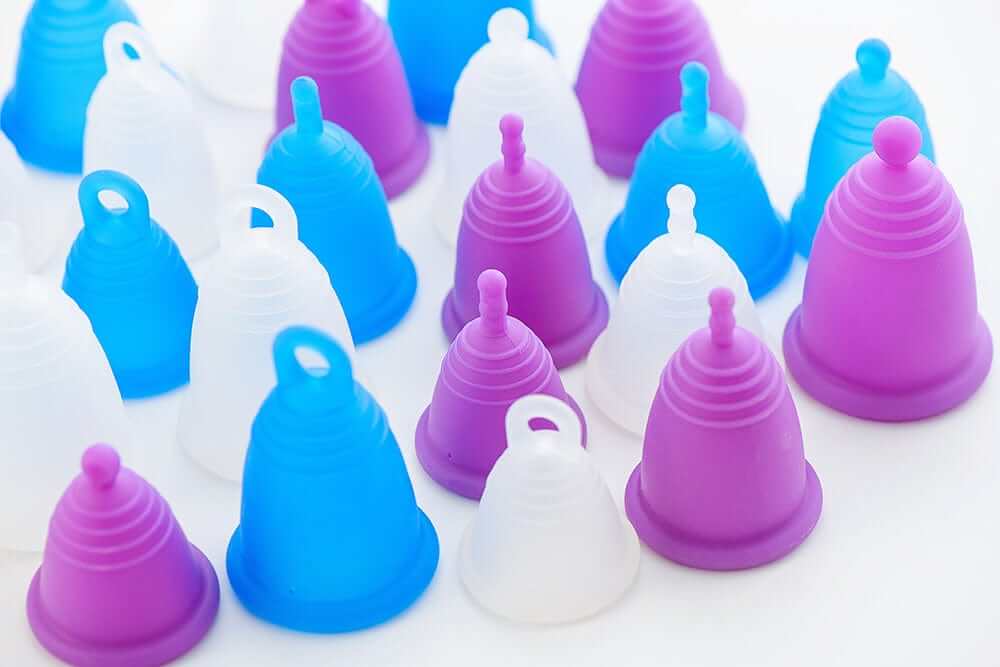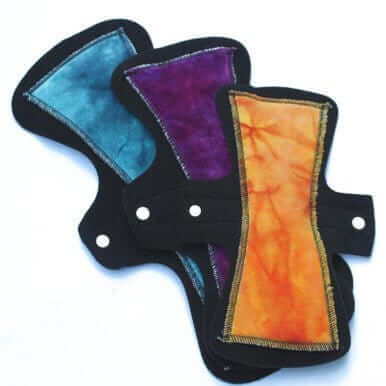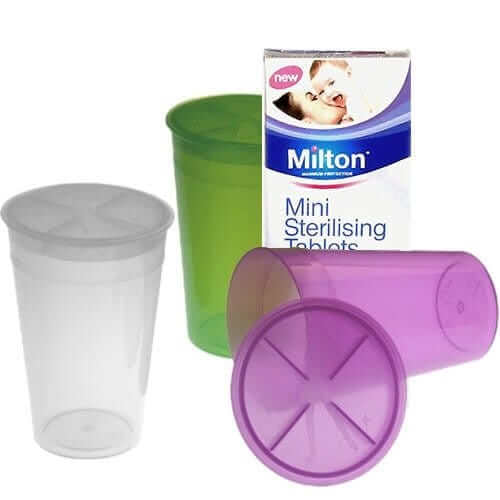Menstrual Cup Material Info
About Menstrual Cup Material
Many products made previously out of rubber or silicone are now made of TPE. Especially when it comes to medical devices like menstrual cups, there are good reasons for this:
- Safety
- Health
- Comfort
- Recyclability
- Eco-Friendly Production
Safety: Less Likely to Harbor Bacteria Associated with TSS
Recently, independent studies on menstrual cups by a microbial expert in France have shown that cups made from TPE are less likely to harbor harmful bacteria associated with TSS than menstrual cups made from silicone.
Health: Instances of Allergies
TPE has a lower incidence of causing an allergic reaction than silicone.
Comfort: TPE adjusts its shape to its environment
TPE is also a very pliable material that readily conforms to its surroundings for an even more custom feel for the wearer. You may find that your TPE cup becomes a bit more oval in shape over time after adjusting to its wearer’s shape. This is nothing to worry about. The cup will again conform to your shape the next time you wear it. If you ever want to return the cup to its original completely round shape, boil it in hot water.
Recyclability: Thermoset versus Thermoplastic
Thermoplastic elastomers (TPEs) are better for the environment than materials like rubber or silicone for several reasons. Thermoplasticity means a product can be reshaped using heat. Thermoset means the final product cannot be remolded or heated after the initial forming. Both silicone and latex are thermoset materials. TPEs can be reprocessed using heat, which means manufacturers can reuse scrap materials. If a product is made incorrectly or needs changes during testing, it can be reheated and reshaped without creating waste. In the production of MeLuna cups, there is virtually no waste. In contrast, thermoset materials like silicone and latex have more limited options. While you can grind up a tire to make material for a track at a school, you cannot change the rubber into a new, recyclable product. Thermoset materials are not recyclable in the original sense of the word.
More Eco-Friendly Production: Energy and Water
A comparison of the silicone production process also favors TPE when it comes to being environmentally friendly. Silicone production requires a high amount of energy, significantly more than TPE, due to the high temperature at which it needs to be processed. The process of manufacturing silicone also requires immense amounts of water.
This is not the case in TPE production, and in the manufacturing of the MeLuna cups themselves, any water used for cooling is recycled.
MeLuna is made from an Elastomer called TPE (thermoplastic elastomer).Elastomer refers to a natural or synthetic polymer that has elastic properties. Natural rubber for example is an elastomer. MeLuna TPE does not contain any Latex.
Thermoplastic refers to the ability of the material to be molded under the application of heat and it retains its new shape when it cools without a change to the original properties of the material. Plasticity is a term that refers to changeability. By the application of heat the MeLuna can change its shape.
TPE exists in many variants and is made with different components depending on application. Medical grade TPE has very little in common with TPE used for yoga mats for example. Our TPE is specifically manufactured for the medical device industry. The production is very closely monitored and only consists of components suitable for medical device applications.The material is manufactured by Kraiburg GmbH in Germany. It was developed especially for such highly sensitive applications and has passed the mucosal irritation test with flying colors. You may have encountered this material before in items such as pacifiers. The TPE used in MeLuna cups is BfR, FDA, 2002/72/EC and ISO 10993-10 certified.You can find more info about the raw material through the Kraiburg website here. https://www.kraiburg-tpe.com/en/thermolast-mThe Oko-Test Organization rated MeLuna as Sehr Gut (Very Good) in comparison with 21 other cups and tampons tested. You can view the full report here.
The colorants used in MeLuna USA menstrual cups is one of the main differences between the US version that is FDA cleared and the European version of MeLuna cups.The colorants used in the US version are not food colorants but rather high-end colorants specifically engineered to be used in medical devices. They have been extensively tested to be safe for applications including contact with mucosal tissue like in the vagina.For cup users wanting to completely avoid any type of colorants MeLuna also is available in clear/ colorant-free
Check out this informative blog post on menstrual cup materials HERE. All common menstrual cup materials are covered (Silicone, Latex, TPE)
About MeLuna Manufacturing
The Me Luna manufacturing facility in Germany uses solar energy to generate energy, and virtually all water used in the production process is recycled.
MeLuna is manufactured in Brand, Germany. The high-quality, pure TPE granules are placed in a special molding machine to be melted and injected into the MeLuna molds under high pressure. The machinery is dedicated to use in the production of menstrual cups only. No other materials come in contact with it. After cooling, The finished cups are removed, and all cups are checked individually immediately. This means they will be assessed from all sides; it is also verified that no tiny air bubbles exist. If any errors are present, the item is not released for sale.
MeLuna Menstrual Cup Safety
The TPE used in medical devices is not the same as TPE used in consumer products like yoga mats. The process is controlled and monitored using a quality control system that starts with the delivery of the granules from the world market leader and world's largest manufacturer of TPE, Kraiburg GmbH, on through to the final product.
The quality standard is 9001:2000 certified by an independent body to ISO and monitored.
MeLuna USA cups are also inspected and documented separately by MeLuna USA in accordance with FDA Quality Control standards when they arrive in the US.
The U.S.version of the MeLuna cups are also subject to FDA inspections at the manufacturing plant in Germany as well as the MeLuna USA location here in Texas.
The MeLuna USA Version Of The Cup Was Put Through The FDA Clearance Process And Registered With The FDA In 2014.You can access our registrations here:
Current FDA registration status
Manufacturer's registration (MeLuna Germany)
MeLuna USA (Domino Pads LLC) US Distributor Registration
It is important to note that only the version made for MeLuna USA is FDA cleared and registered.If you decide to purchase versions from other countries they will not be the same.
The US version of MeLuna shares many of the same great features as the MeLuna cups made for the rest of the world like a huge range of sizes, handle styles and firmness levels.
There's one significant difference though. MeLuna USA cups are made specifically to meet stringent FDA standards. When choosing a MeLuna cup be sure to choose the FDA cleared version from MeLuna USA.
Only the version made for MeLuna USA is FDA registered. This process goes way beyond just material safety and includes ongoing quality control measures and inspections.











